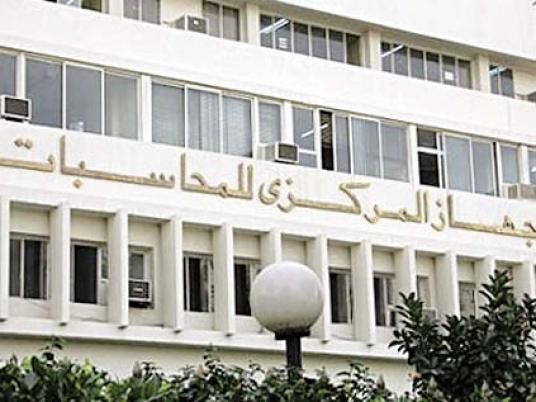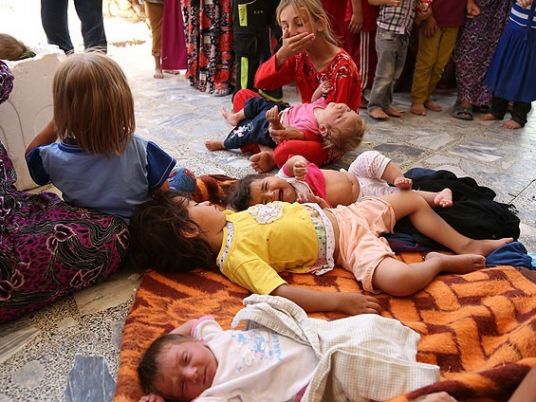Although the recently-adopted women’s quota system will ensure 64 women are represented in Egypt’s People’s Assembly for the first time since 1886, some argue the system has some serious drawbacks, reports state-run Al-Gomhorriya. The most important drawback is that each governorate constitutes a single electoral district, rendering it difficult for candidates to tour large districts during the campaign period. The quota system is expected to be in effect for the 2010 and 2015 parliamentary elections until women gain the electoral experience required to compete against men in other districts.
Beyond the fierce competition over National Democratic Party (NDP) nominations for women’s quota seats, however, the 2010 elections feature some powerful female competitors outside of the quota system.
Competition over NDP nominations for quota seats heightened as internal elections, held on Wednesday, approached. Hours before internal elections in the governorate of Assyout, a verbal struggle ensued among the 21 candidates vying for nomination for the governorate’ s two seats. In Minya, the heated competition between 26 candidates seeking NDP nomination became the topic of street discussion, reports Al-Dostour.
Candidates competing over NDP nominations for quota seats have employed a mix of campaign tools, including the use of religious symbols. Ahlam Mahmoud, striving for the workers’ seat in the south and west Cairo district, has distributed a campaign booklet whose cover contains a Quranic verse and a photograph of Mahmoud without the Niqab. Several photographs inside the booklet, however, show Mahmoud clad in the conservative dress. Similarly, NDP candidate Heba Ali Mahmoud distributed some campaign materials with and without photographs of her donning the veil, reports Al-Shorouk.
In Minya, women prepared meals on the streets and attended weddings, reports Al-Dostour. Others distributed biographical booklets and CDs, reports Al-Shorouk. In Daqahliya, candidates distributed chocolate and flowers to party members, according to Al-Akhbar. Some candidates, such as Huwaida Abdul Qader of Minya, employed lavish campaigns expenditures, according to Al-Dostour.
Controversy surrounds the nomination of NDP female cadres. Reports suggesting Minister of Labor Aisha Abdel Hadi will run in the Suez district caused “several problems” for the NDP secretariat in the governorate, leading Ahmed Abu Nazil, NDP secretary in Suez, to cancel the decision to re-open the door for candidacies, reports privately-owned Al-Shorouk. According to the coverage, several prominent NDP members in Suez threatened to resign and support MB candidates if Abdel Hadi were allowed to run.
In Marsa Matrouh Governorate, NDP secretary for women Mona Kandil is vying for the professionals’ seat despite NDP regulations that bar organizational post holders from running.
Finally, the 2010 race features several female candidates who are running for office outside of the quota system, sometimes posing a serious challenge to male competitors. Gamila Ismail–news broadcaster and opposition figure–refused to run for a quota seat, and will instead run as an independent in the Qasr El-Nil district. Also in that district, actress and Wafd party member Samira Ahmed will be competing against NDP candidate Hisham Mostafa Khalil. Ahmed’s decision has put the NDP in a “very difficult position” and heightened the competition in a traditionally quiet district, according to a report by privately-owned Al-Dostour.
In Assyout’s second district, journalist for Middle East News Agency Samya Al-Agouz announced that she will run against 22 men rather than compete for one of the district’s two reserved female seats, causing some “panic” among male candidates, reports Al-Ahram.
In other news, NDP-Muslim Brotherhood competition persists in several districts. NDP Giza candidate, Mohammed Abu al-Einin–who has held the professionals’ seat since 2000–is facing fierce competition from MB candidate Mohammed Abu El-Dhahab who ran against al-Einin in 2000 in a race that required a second round, reports Al-Dostour.
The competition is heated in the district of Bandar Shebin al-Kom, a stronghold of the MB, as the brother of Minister of Education Admed Zaki Badr, Mohammed Zaki Badr, and Amin Mubarak, President Hosni Mubarak’s cousin, are facing MB candidate Ragab Abu Zaid, reports Al-Dostour.
Egypt's papers:
Al-Ahram: Daily, state-run, largest distribution in Egypt
Al-Akhbar: Daily, state-run, second to Al-Ahram in institutional size
Al-Gomhorriya: Daily, state-run
Rose al-Youssef: Daily, state-run, close to the National Democratic Party's Policies Secretariat
Al-Dostour: Daily, privately owned
Al-Shorouk: Daily, privately owned
Al-Wafd: Daily, published by the liberal Wafd Party
Al-Arabi: Weekly, published by the Arab Nasserist party
Youm7: Weekly, privately owned
Sawt al-Umma: Weekly, privately owned


